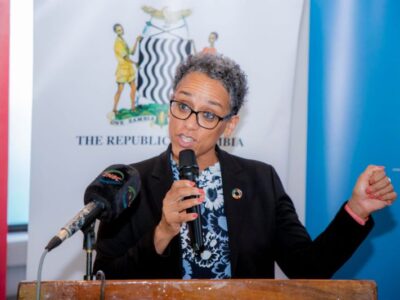Zambia has been cited to be among the seven African countries which will grapple with debt-service burden in 2023.
Tunisia, Egypt, Congo-Brazzaville, Ghana, Zimbabwe and Mozambique are the other African countries cited by the Economist Intelligence Unit (EIU) to deal with debt service next year.
The EIU stated that these African countries had enormous amounts of debt relative to Gross Domestic Product (GDP) and their governments will grapple with debt-servicing burdens that would eat up a substantial share of their revenue in 2023.
In its Africa Outlook 2023 Report released this week, the EIU pointed out that the public-sector debt/GDP ratio would remain above 60% for Africa in 2022 and 2023 and some African countries would far exceed this level.
“The need to service and roll over large amounts of debt at a time when domestic and international borrowing costs are on the rise will weigh heavily on some countries in 2023 and things could get even more painful in 2024 when more capital repayments fall due” EIU stated.
EIU indicated that African governments had ramped up their borrowing—domestically and internationally — and that public sector debt ratios had pushed back towards the highs, last seen in the early 2000s just before the enormous debt restructuring of 2005, implemented under the umbrella of the heavily indebted poor countries (HIPC) initiative.
It has also predicted that more African would head towards external debt distress in 2023 and 2024.
“African states are required to repay about US$75 billion of external borrowing (medium- and long-term capital repayments that fall due) in 2023 and a similar amount in 2024.
“Foreign creditors have offered pandemic-related debt relief and relatively low—by historical standards—interest rates in recent years, but these lines of international financial support have come to an end,” it stated.
Read more: Debt servicing gulps K2.9bn, as government releases K10.8bn for projects
It further stated the debt-servicing burden would become more painful because of higher interest rates, weaker currencies against the United States dollar and softer capital inflows, while rolling over existing debt or accruing new debt will become much more of a challenge.
Already, indicated, many African had found it difficult to issue new Eurobonds in 2022 and yields in secondary markets—which indicated where future refinancing costs are headed—had risen sharply.
“A widespread external debt crisis across the continent seems unlikely, but some highly leveraged states will face acute financing difficulties and a very uncertain period,” it stated.












Comments